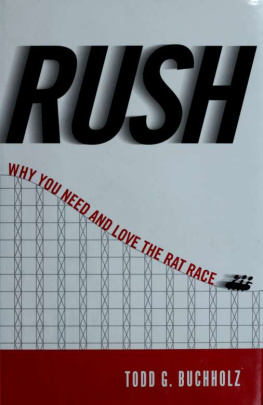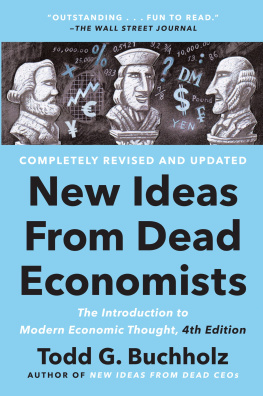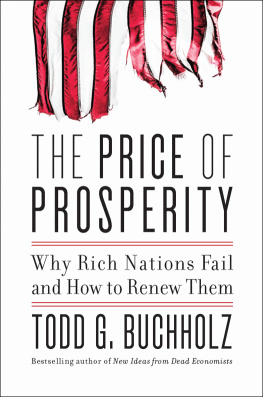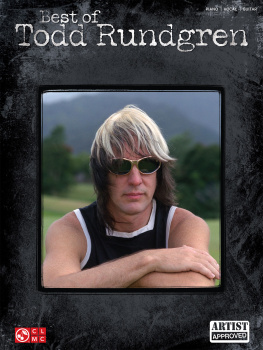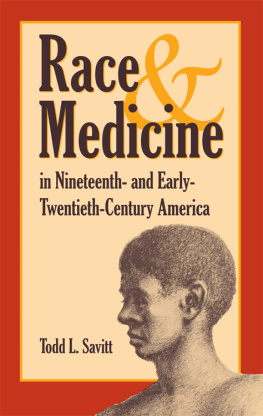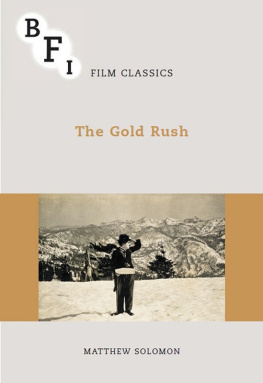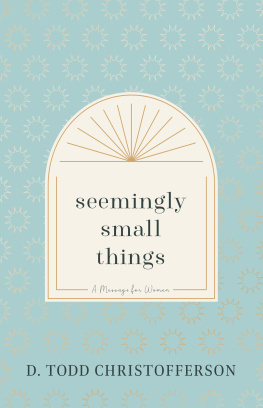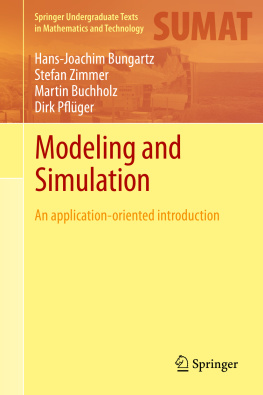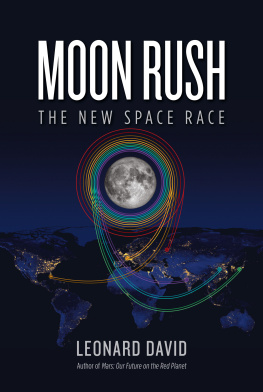Todd G. Buchholz - Rush: Why You Need and Love the Rat Race
Here you can read online Todd G. Buchholz - Rush: Why You Need and Love the Rat Race full text of the book (entire story) in english for free. Download pdf and epub, get meaning, cover and reviews about this ebook. year: 2011, publisher: Hudson Street Press, genre: Politics. Description of the work, (preface) as well as reviews are available. Best literature library LitArk.com created for fans of good reading and offers a wide selection of genres:
Romance novel
Science fiction
Adventure
Detective
Science
History
Home and family
Prose
Art
Politics
Computer
Non-fiction
Religion
Business
Children
Humor
Choose a favorite category and find really read worthwhile books. Enjoy immersion in the world of imagination, feel the emotions of the characters or learn something new for yourself, make an fascinating discovery.
- Book:Rush: Why You Need and Love the Rat Race
- Author:
- Publisher:Hudson Street Press
- Genre:
- Year:2011
- Rating:3 / 5
- Favourites:Add to favourites
- Your mark:
- 60
- 1
- 2
- 3
- 4
- 5
Rush: Why You Need and Love the Rat Race: summary, description and annotation
We offer to read an annotation, description, summary or preface (depends on what the author of the book "Rush: Why You Need and Love the Rat Race" wrote himself). If you haven't found the necessary information about the book — write in the comments, we will try to find it.
Rush: Why You Need and Love the Rat Race — read online for free the complete book (whole text) full work
Below is the text of the book, divided by pages. System saving the place of the last page read, allows you to conveniently read the book "Rush: Why You Need and Love the Rat Race" online for free, without having to search again every time where you left off. Put a bookmark, and you can go to the page where you finished reading at any time.
Font size:
Interval:
Bookmark:

This book made available by the Internet Archive.





To my ancestors, who managed to avoid getting eaten by saber-toothed tigers, trampled by woolly mammoths, or lost at shipping docks in the 1800s on their way to America.
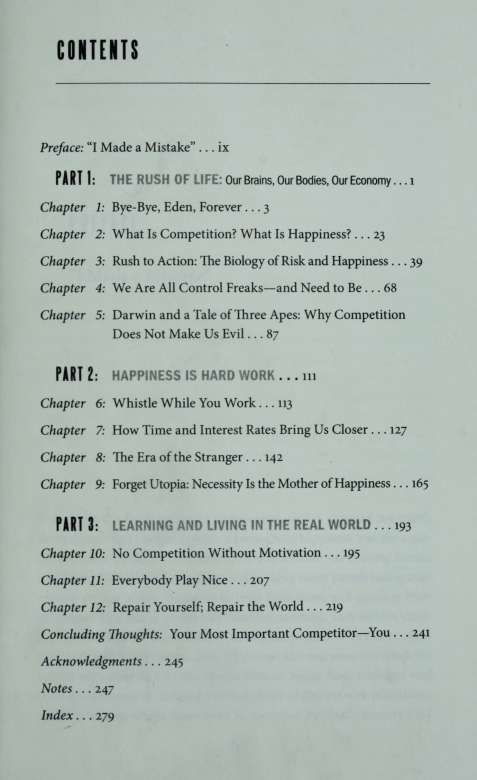
PREFACE
"I Made a Mistake"
This is not the book you were supposed to read. I changed my mind. Several years ago I began to write a book about happiness and the economy. It was to be called Tail Hunters: How Americans Are Chasing Success and Losing Their Souls. I was distressed to see so many people racing after money, paying plastic surgeons to redo their faces, and goading their children to kick soccer goals every Saturday morning. They all were chasing the "tail end" of the bell curve. Everyone wanted to be richer, skinnier, and, well, more outstanding. Of course, not everyone can reach the tail. In my career as a White House adviser, hedge fund manager, and economics teacher at Harvard, I've had plenty of dinners with billionaires and bon vivants whose faces were so stretched by plastic surgery they
x Preface
looked like they were reentering the earths atmosphere. But most of us are stuck in the middle of the bulging bell curve and cant climb out. I was convinced that bad parenting and misleading media images tricked people into wasting their lives pursuing a tiny sliver of possibility. I wasn't alone in this view. Bookstore shelves are nearly collapsing under the "tsk-tsks" of philosophers, psychologists, political scientists, and economists sounding a similar alarm. Happiness studies have "proved" that even a strong economy makes us miserable. The financial meltdowns of 2008 and 2009 spilled enough red ink that I could have written that scolding book in bold-faced, bloodred letters.
But I was wrong. Those jeremiads condemning us for rushing around and competing too much are too easy to spout and too shallow to hold water. There is no proof that cutting out the frenzy would make us happier. The claims reflect an enduring yearning to return to Eden. Now, Eden was apparently a sunny, peaceful place, and the very name means pleasure. But there's no going back. We have no map, no entry ticket, and no idea how to behave in a garden of bliss.
I took the tail-hunting idea and began to spin it around like a Rubik's Cube, researching and thinking about Adam Smith, Michelangelo, Darwin, Freud, the history of civilizations, the history of art, and the behavior of modern economies. How does happiness really fit into the economy? What would happen to the economy if we took happiness studies seriously? I began to tear apart my old book manuscript and develop a new and controversial idea: that happiness comes from the rushing around. We feel better chasing the tails, even if we never catch them. The hunt makes us happier. I began to write at a furious pace, feeling that I was knocking down false prophets who speak from pulpits, classrooms, and yoga mats and make their followers feel guilty about trying to eke out some success in a chaotic world.
Along the way, a close friend became annoyed with me because I was more limber than she. She was taking a yoga class and explained that she was frustrated. She was struggling, trying to balance her body in the Crow Pose (bakasana). I hopped onto the floor. "You mean this?" I asked, putting my palms down on the floor in front of me, resting my elbows on my knees, and raising my head and feet off the floor. "Yes,"
Preface xi
she sneered, stamping her toe-ringed foot. "How did you 7 . This is ridiculous. You know nothing about yoga!" she shouted indignantly. It was true. I had simply learned to do this in third-grade gym class and never forgot.
But it made me think. Then I turned indignant. Why was she mad at me? Since when is yoga about keeping up with the Joneses and trying to out-Zen your neighbor?
Then I saw it. I was almost finished writing this book when the New York Times featured a story about yoga. But this was not your old yogis yoga. It was avowedly competitive yoga. Men and women in Lululemon tights trying to prove that they are the most limber in the room. Who could tuck their heads under their butts and lower their blood pressure furthest? It reminded me of a news report about meditating yogis trying to levitate themselves and sail over a stack of gym mats. In fact, the yogis merely hopped. Grimacing. Who knows how many tubes of Bengay they squeezed out afterward to salve their aching muscles.
What does this tell us? That the spirit of competition and the rush of life is mighty. It is integral to our beings. Blame it on evolution, blame it on God, blame it on Dan Brown and The Da Vinci Code conspiracy. But the twisted strands of DNA that make us human cannot be unfurled and examined without finding competition. And the happiness we seek cannot be found if we foolishly try to run away from who we are.
WHERE THE WILD THINGS ARE
Fasten your seat belts; this is going to be a bumpy ride into unknown territory. Medieval maps marked such terrain with stark and arresting warnings: "Here Be Dragons." The mapmakers worried that beyond England and Spain awaited beasts from hell. This isn't a journey to hell, but many of the places we end up are going to seem pretty unlikely. To follow the story of competition and the human race for happiness, we will delve into our Darwinian past, the people of the Stone Age, and foragers in South America today. We must also don pith helmets and
xii Preface
explore the history of the world economy to see how agricultural villages turned to trade, then turned to industry, and then to the technological revolution that ignites diodes across the planet today. Many people condemn our fast-paced lives for creating a dog-eat-dog world. But that ignores thousands of years of human history. Just think about life expectancy. As recently as 1900, Americans could expect to live only to age forty-seven. In the laid-back days of Native Americans before the settlers trampled, perhaps thirty. Today, despite the grumblings and stress of office buildings, credit card debt, and crowded schools, life expectancy in the developed world is closing in on eighty. It will go higher. Could it be that competition extends life?
To make the connection between competition and happiness, we will deploy fMRI and PET scanners so we can uncover the secrets that lie behind our frontal lobes and our reptilian brains. We will look at Darwin's notes and see how the unavoidable race among species helps shape the economy. We will look at the workplace and the home and find all sorts of surprises: Stress is good for you; retiring makes you stupid; and the hardest-working people are not the downtrodden, but those who can afford more vacations.
Font size:
Interval:
Bookmark:
Similar books «Rush: Why You Need and Love the Rat Race»
Look at similar books to Rush: Why You Need and Love the Rat Race. We have selected literature similar in name and meaning in the hope of providing readers with more options to find new, interesting, not yet read works.
Discussion, reviews of the book Rush: Why You Need and Love the Rat Race and just readers' own opinions. Leave your comments, write what you think about the work, its meaning or the main characters. Specify what exactly you liked and what you didn't like, and why you think so.

